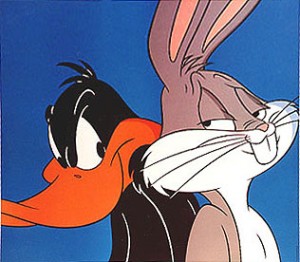First, let’s define plot. A story is a narrative of events arranged in a time sequence. A Plot is a narrative of events in a time sequence where the emphasis falls on causality. That is, it is not enough to simply relate a sequence of events. The plot must give the reader not just what happened, but why it happened.
It’s been said that plot is the engine that drives your book. (Actually, I guess it was I who said that. But it has been said.) Character may be the leather upholstery. But plot will get it moving. And keep it moving – if you expect the book to get anywhere.
Aristotle called plot preeminent in dramatic art. He said it was more important than character. Henry James called plot a “prime and precious thing.” Lawrence Block said, when talking about plot ideas in his book Writing the Novel, “While ideas are not the sine qua non in a novel … , they are nevertheless essential.” He later says that the principal reason a person keeps reading a novel is to find out what happens next. That is, where the plot will take them.
Plot gives the book significance.
 Characters make us care about the book. Plot keeps us turning the pages. Both are necessary. They work together. One without the other is like Laurel without Hardy, or Abbott without Costello. Or for the younger generation, Bugs Bunny without Daffy Duck, Sylvester without Tweety Bird, or Batman wthout
Characters make us care about the book. Plot keeps us turning the pages. Both are necessary. They work together. One without the other is like Laurel without Hardy, or Abbott without Costello. Or for the younger generation, Bugs Bunny without Daffy Duck, Sylvester without Tweety Bird, or Batman wthout  Robin.
Robin.
But it is only plot that will make us read hours past our bed time. It is plot that will make kids read by flashlight under a blanket when parents have said it’s time for lights out.
We need chara cters we can be interested in. But we need a book that will make out heart beat faster. That means plot. We must care about the characters, but they won’t likely raise our pulse rate.
cters we can be interested in. But we need a book that will make out heart beat faster. That means plot. We must care about the characters, but they won’t likely raise our pulse rate.
The goal of most writers is to write a page-turner. When someone tells you a book was a “page-turner” that is high praise indeed and will induce us to read that book.
Plot makes a “page-turner.”
Even if the author has constructed caarefully drawn characters that the reader has come to like (or dislike), she continues to read to find out what happens to these characters. Will he survive? Will she win the presidency? Will that sleaze ball finally get what he deserves? In other words, where will the plot take these interesting characters.
Some authors can write a beautiful novel with little or no plot, as James Joyce did in Finnegan’s Wake. But while widely acclaimed, Finnegan’s Wake is rarely read. It is never held up as a “page-turner.”
Oakley Hall, for years the director of the programs in writing at the University of California at Irvine, said plot is the dynamic element of fiction.
Certain genres demand emphasis on plot. Mysteries, science fiction, fantasy, and thrillers are some where the emphasis must be on plot. And most literary fiction and a lot of women’s fiction tend to be much more character oriented. So, what you choose to write may determine just how important plot is.
If you start with plot, it will shape your characters. If you start with characters, they may well determine what the plot is, where it goes.
The Help is certainly character driven, and here the characters determine where the plot is going. On the other hand, The Hunt for Red October is plot driven. And the nature of the plot determines the characters.
So, like Ben and Jerry, or even Jack and Jill, your book needs both parts.
But the engine makes it go. Keeps it moving. Makes the “page-turner.” And the engine is the plot.
Now, let’s hear your thoughts on which is more important: characters or plot.

Personally, I like plot and then character. When I read the jacket of a book the plot of that book intrigues me to want to read further. Sure Characters are just as important, but when I write I already know the plot and the name of my protagonist . Augie
My vote is for characters first, plot second. Like Katherine, I won’t read the book if the characters don’t reach out and grab me. Thanks for the (as usual) interesting blog.
Ok, I with the others, I believe characters are critical and plot comes second. If I don’t care for the characters I won’t finish reading the book. Great blog.
You make a good case, Jim. But I’m still with Pat on this–you need both and I still believe you can’t have plot without characters.
Jim,
Last week, you wrote about the importance of character and I commented on the fact that, in my opinion, plot and character are both crucial elements of a good novel but, if I had to choose one over the other, I would choose character.
My opinion hasn’t changed. Give me a character I care about with something she wants or needs to accomplish and, after that, give me a strong story line (plot) and we’re good to go!